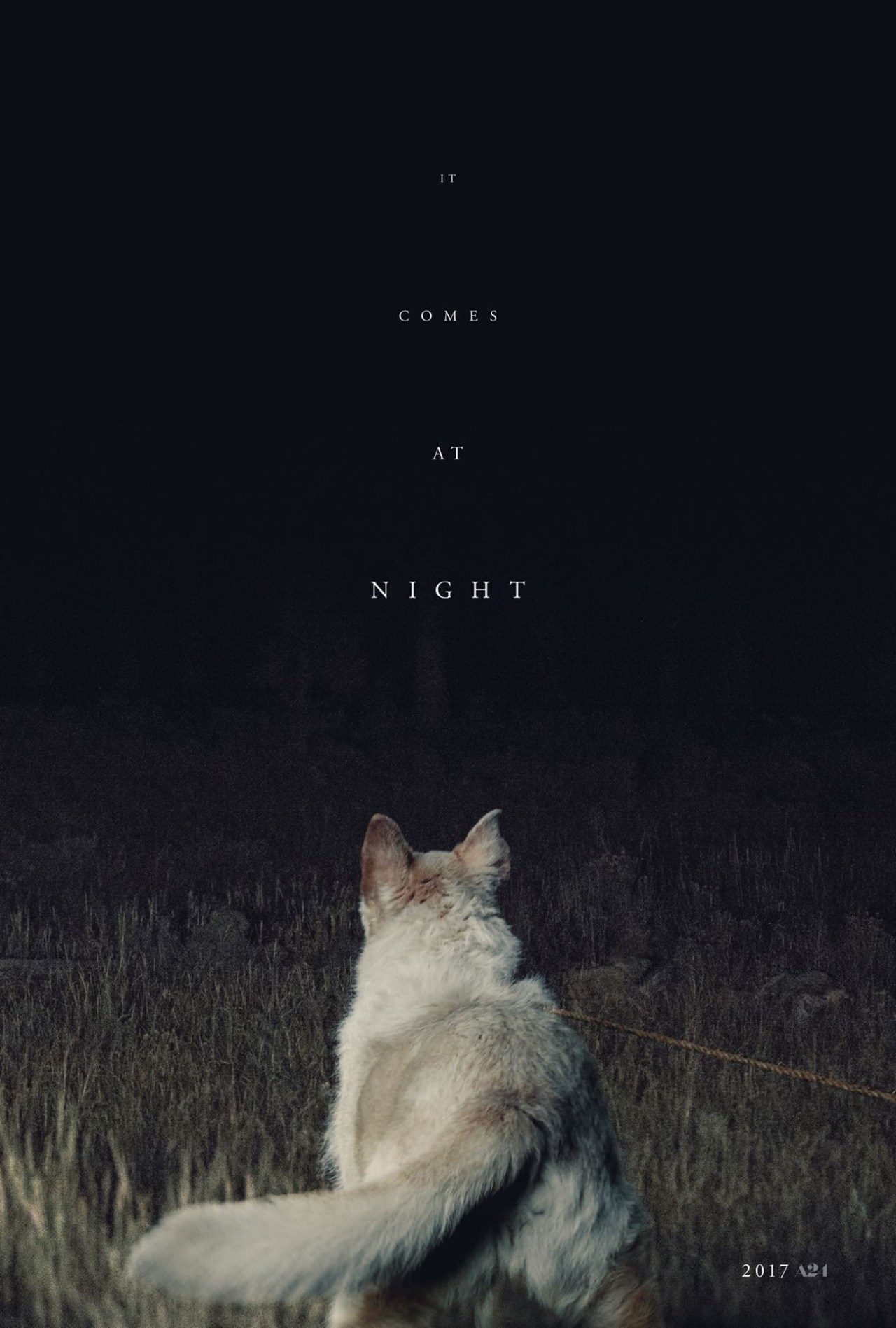

By Zach Landau | A&E Editor
I cannot remember the last time I felt so conflicted about a film.
It Comes at Night is a curious movie that should tick every box for me. At its core, the film tries to unravel the perverse evil that hypermasculinity inflicts on men and ends inconclusively — which is the best and scariest way to end these types of things. This, along with a morality tale that is equally disturbing in its ambiguity, should make it my perfect film.
However, it is possible for a project to spin too many plates at once, so to speak, and unfortunately, It Comes may have done just that. The result is a film that, while as stylish and creepy as they come, fails to really excite the audience.
Which is a shame as, at the outset, It Comes tries really hard to make the audience like it. The framing in some shots, as well as the skillfully executed sound design, is almost delicious in how smooth and sleek it is. Characters and mise en scène carefully guide attention around the screen, with lighting that takes away any easy resting place for the viewers’ eyes.
This may sound like a weird detail to notice, but I genuinely could not focus on one thing within the first five minutes of the film. This is not to say it is overwhelming or unfocused, as the screen remains uncluttered during this incredibly tense moment. Rather, It Comes demonstrates a craftsmanship and artistry that is almost unparalleled, using filmic elements to entice unease within the audience from the moment the house lights go down.
This polish continues throughout the entire film, and it cannot be stated enough just how slick this movie is. Watching characters move through the house that comprises the majority of the film’s setting is made both beautiful and uneasy by expert use of shadows and angles. Much of the film could be told without dialogue at all, each shot set up to perfectly communicate each character’s intentions and motivations without so much as a word.
On the note of the characters, each actor brings a stellar performance to It Comes. Kelvin Harrison Jr. steals the show as Travis, and if I don’t start seeing him in blockbusters by next year, I am going to be severely disappointed.
Joel Edgerton and Carmen Ejogo as Paul and Sarah, Travis’s protective parents, are similarly fantastic, though Edgerton can sometimes over-exaggerate Paul’s anger. Riley Keough and Christopher Abbott are also great, though their performances are not as memorable as the other three by virtue of them being secondary characters.
And I could go on with my praise. Truly, the production values of It Comes are as close to perfect as I have seen in a while, and if I were to teach a film class, I would certainly include it in my curriculum.
However, that praise does not extend to the story, which is where that aforementioned conflict comes in. While the packaging of It Comes is stellar, what it actually delivers in terms of plot and message leaves a lot to be desired.
Take the hypermasculinity theme from before. The prospect of men committing horrendous, sometimes questionably useful, acts of violence under the moniker of being the “protector of the family” should make for some great horror. For the most part, it does, but by the end of the film, I was left not feeling uneasiness, but confusion.
Part of the problem is that the audience does not get one framing device to watch the horror unfold. Perspective switches between Travis and Paul at the drop of a hat, which has the unfortunate consequence of splitting the witnesses that the misdeeds are meant to horrify. When Travis becomes the point of view, the viewers are encouraged to identify with him, questioning as he does the validity of tying people to trees to starve them, or holding children at gunpoint.
All too frequently, however, the audience’s perspective is shifted to Paul, removing any sense of connection previously held with Travis. Not only is frequently changing the protagonist disorienting, but it’s also ineffective.
While previously our sympathy aligns with Travis, when we examine Paul and his musings, the audience must now watch as a complete outsider, attempting to piece together what we are supposed to feel about the circumstances.
And rather bland circumstances those are. From the moment the film begins, every zombie/disease-outbreak trope is utilized, and by the 20-minute mark, I was checking my phone regularly. The entire film is predictable, and any horror film connoisseur could call out the plot beats as they happen.
This, and the lack of an emotional core, is what ultimately stops me from giving It Comes the highest praise. It’s unfortunate, really, that a film with such an artistic vision was hampered by mediocre storytelling, as a more focused plot that hammered home its themes vigorously would have been a joy to watch.
Perhaps if it were released 30, 40, maybe 50 years ago, it would have been a classic, part of the pantheon of Halloween must-sees like Texas Chainsaw Massacre or The Thing. As it stands, It Comes at Night is still a really solid film. I cannot detract from its production values and acting. I can, however, call its plot dull and tedious. As much as it pains me to say it, the film is best left to be rented or picked up at a discount.




